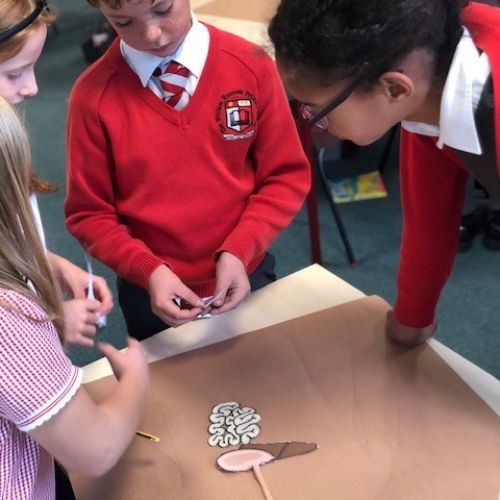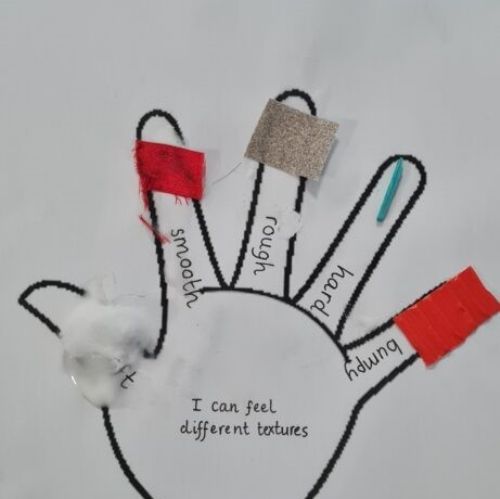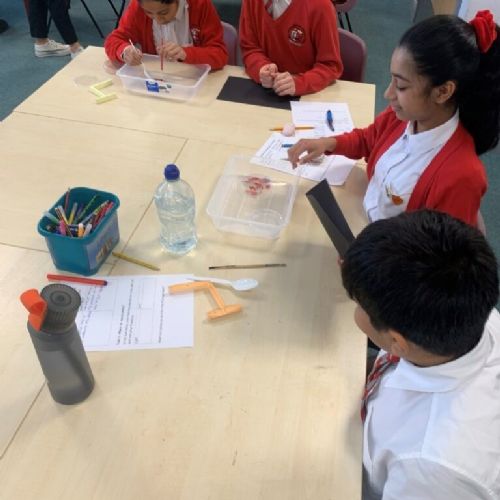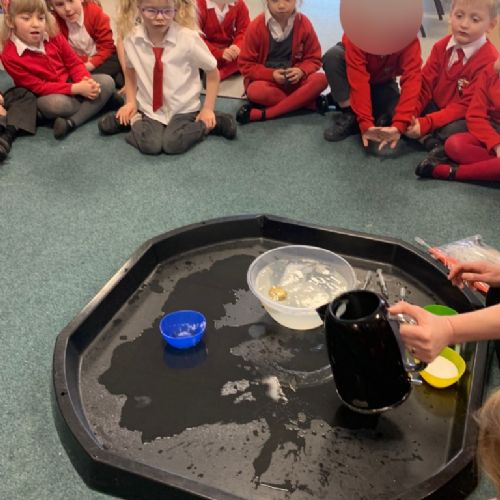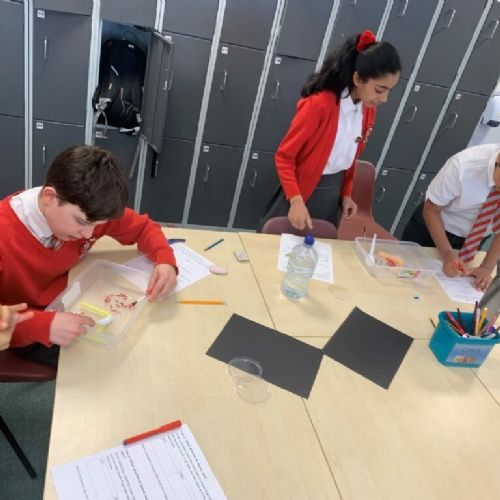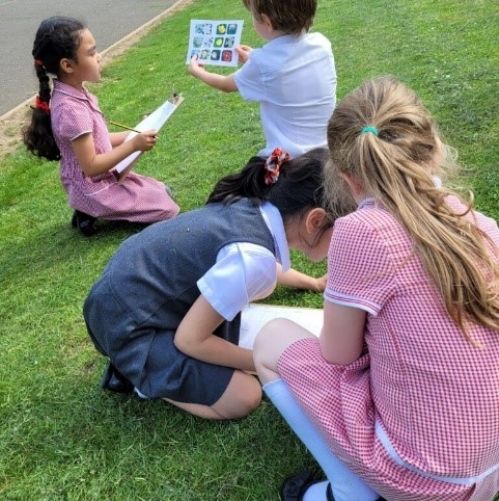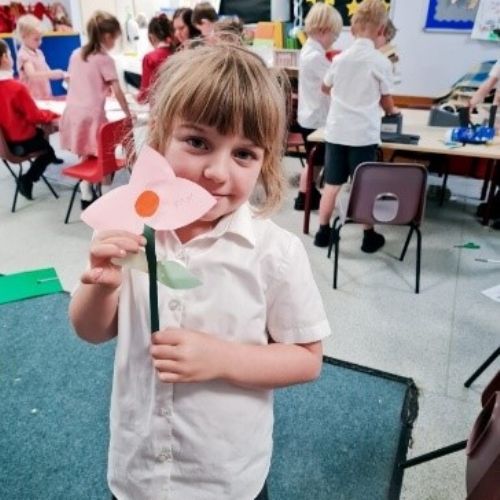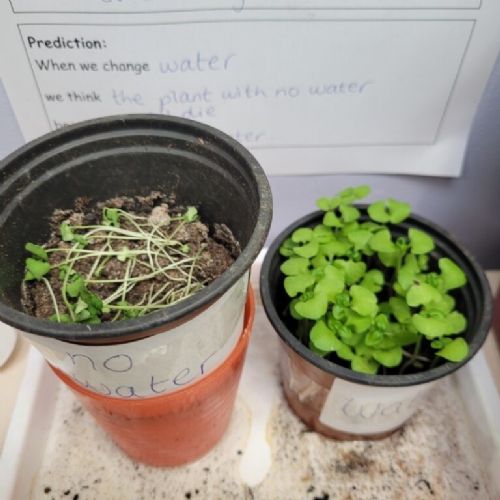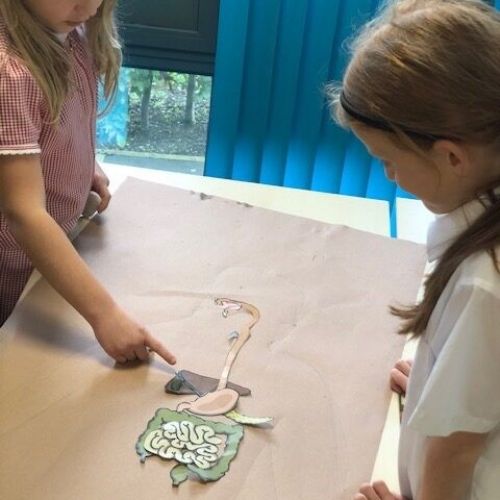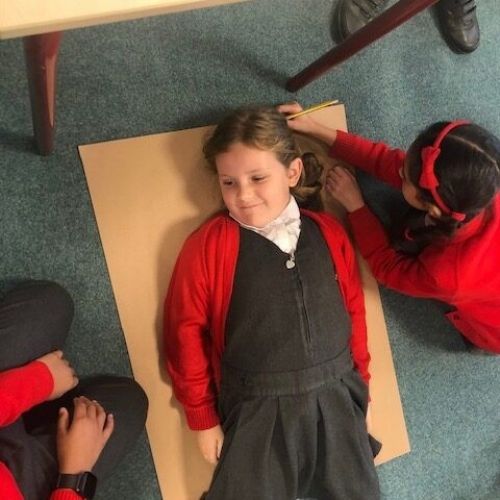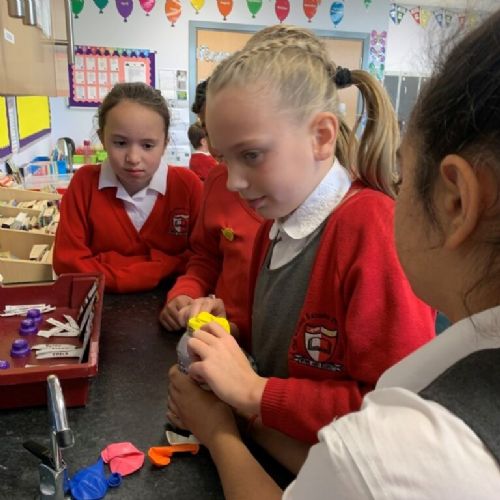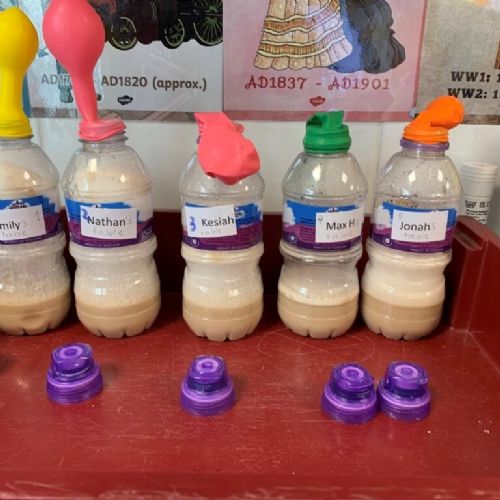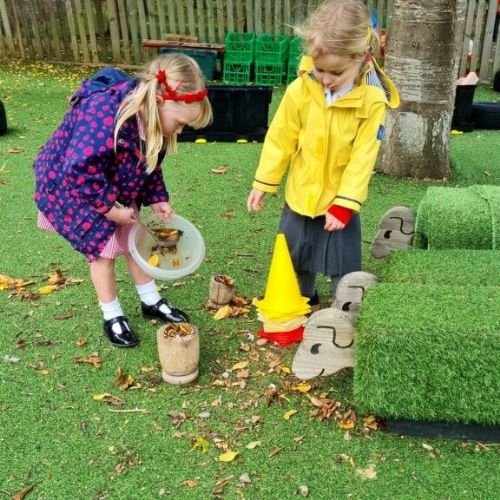Science
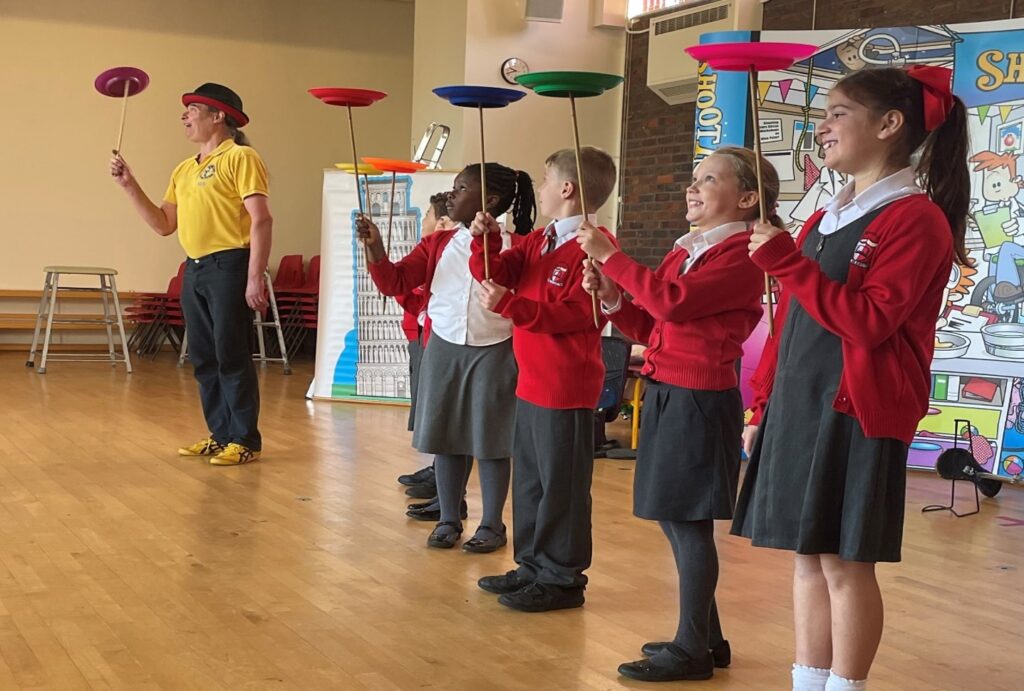
Intent
At William Ransom, we believe science is integral to understanding the world around us. We aim to deliver a fun, practical and motivating science curriculum that nurtures the innate curiosity of all pupils. We strive to foster an appreciation of nature and a sense of responsibility to protect and nurture our fragile environment.
By closely following the National Curriculum and the programmes of study, the children acquire and develop the key knowledge that has been identified within each unit and across each year group. We aim to help develop science understanding by making links between the learning in the classroom and pupil’s real-life observations and experiences.
We ensure that working scientifically skills are built on and developed throughout children’s time at the school. They apply their knowledge of science when using equipment and conducting experiments and investigations. They become familiar with scientific terminology and, most importantly, they are encouraged to ask questions and be curious about their surroundings.
All children will be provided with a broad and balanced science curriculum which reflects the equality and diversity policies and practice within our school. We are keen to develop the ‘Science Capital’ of all pupils, ensuring that each child receives a wide range of positive and enriching science experiences throughout their time at William Ransom.
Implementation
At William Ransom, our aim is that our children develop a love of science. Teachers create a positive attitude to Science learning within their classrooms and reinforce an expectation that all children are capable of achieving high standards in Science.
Planning for Science is based on the National Curriculum with the working scientifically skills following a progressive approach. In Key Stage 1 and 2, Science is taught in topic blocks, ensuring that previous knowledge is built upon. The EYFS (Early Years Foundation Stage) science curriculum equips children with the fundamental knowledge and skills they will need in Year 1.
At the start of each topic, children review previous learning and have the opportunity to share what they already know about a current topic.
Through our planning, we include problem-solving opportunities that allow children to find out, answer and explore concepts for themselves. Children are encouraged to ask their own questions and are given opportunities to use their scientific and research skills to discover answers.
Each learning sequence is carefully planned to ensure the relevant key features of scientific enquiry are taught: observing over time; pattern seeking; identifying, classifying and grouping; comparative and fair testing; and researching using secondary sources. Careful modelling of key scientific vocabulary is used throughout.
Science is taught discretely but we ensure our children have the opportunity to make strong connections between scientific concepts and use these to support their learning and understanding across other subject areas, especially mathematics and technology.
A wide range of resources are used to support the planning, assessment and progression framework, including visits from local Secondary school teachers to deliver Science lessons to the Year 6 children.
The school participates in National Science week each year and runs an Eco Club and a Science Club. Children get regular opportunities to use the school grounds to enhance their learning, including visiting the Nature Area.
Skills Progression Grid
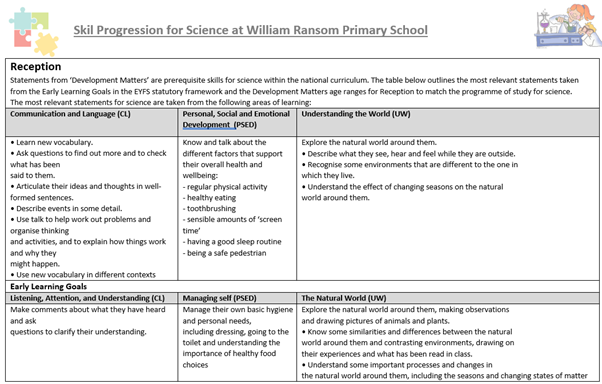
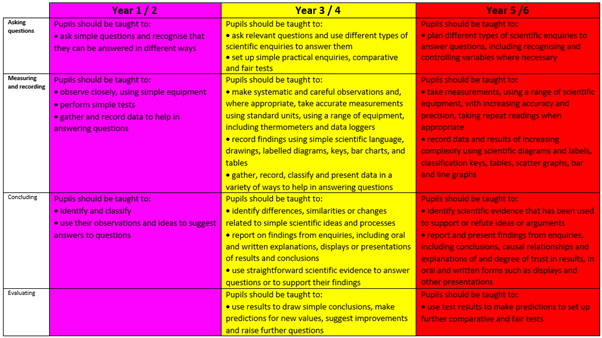
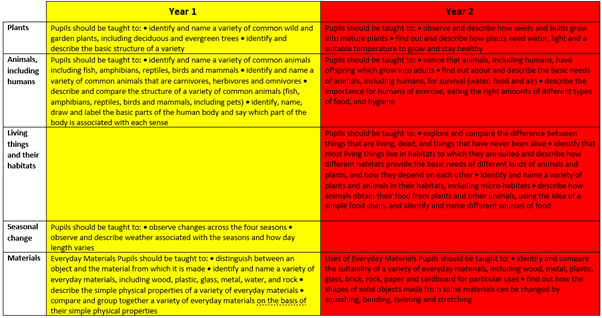
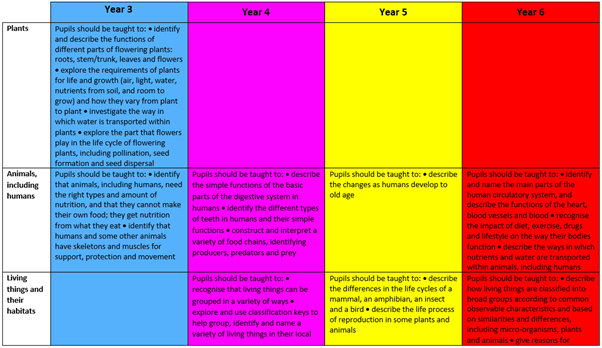
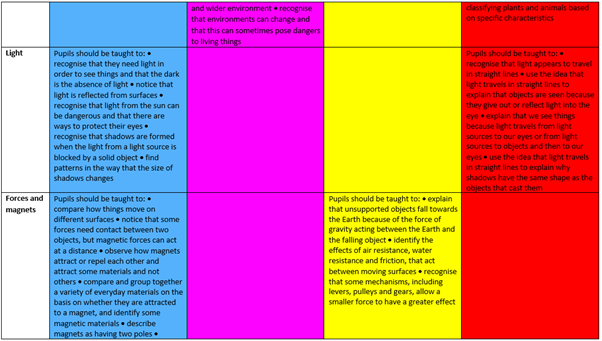
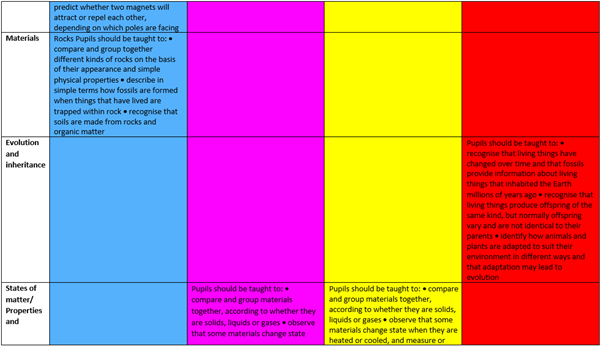
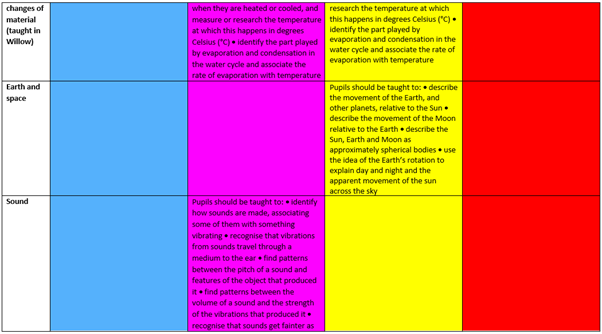
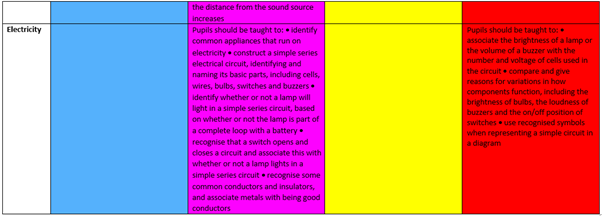
Impact
We aim to create a culture of high scientific aspirations, which will allow our students a platform to develop their scientific learning and to articulate their understanding of key scientific concepts.
The impact of our science curriculum is measured through a variety of means that include lesson observations, book looks, learning walks, data analysis, professional dialogues and conversations with staff and pupils.


